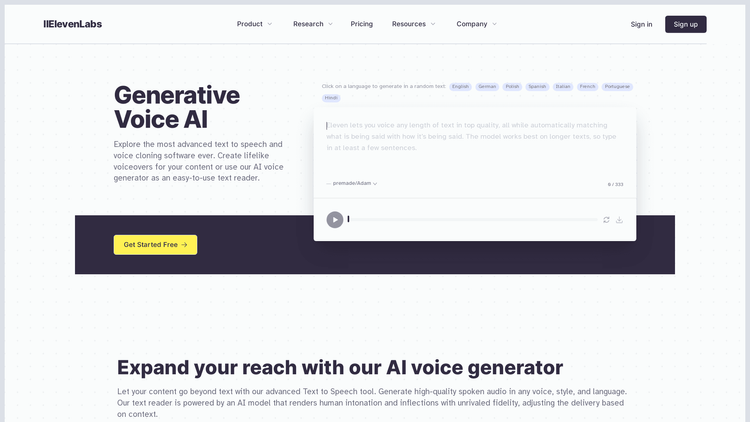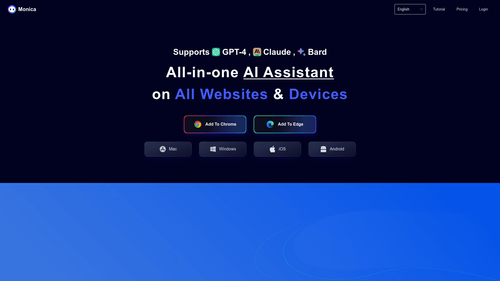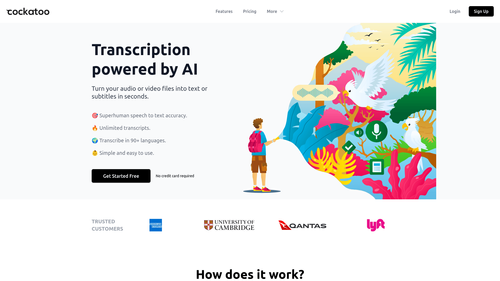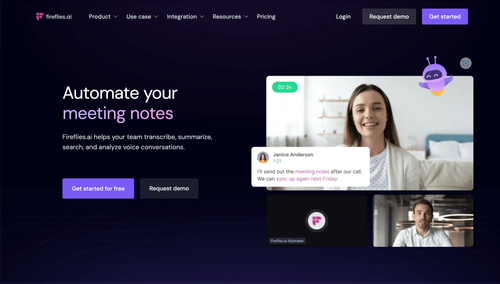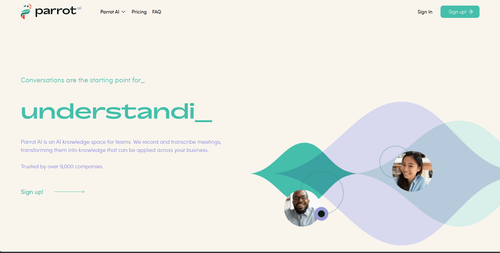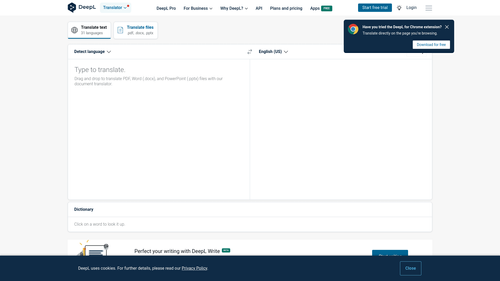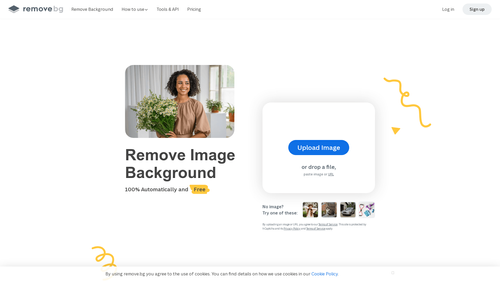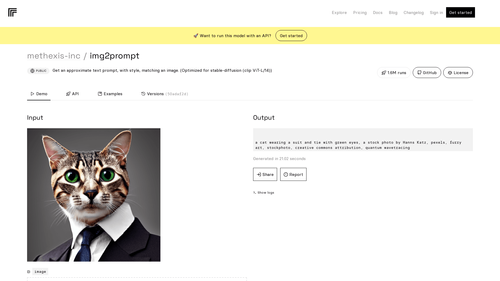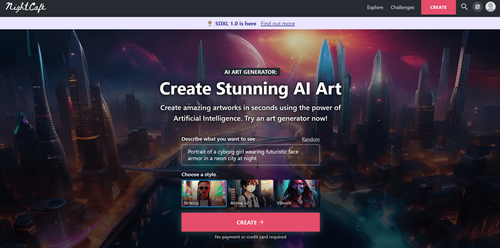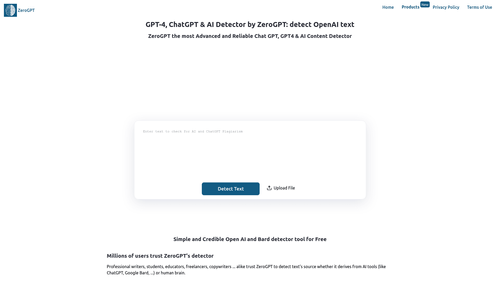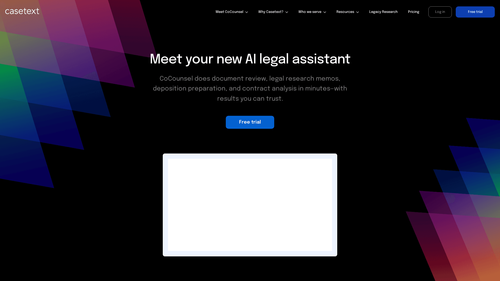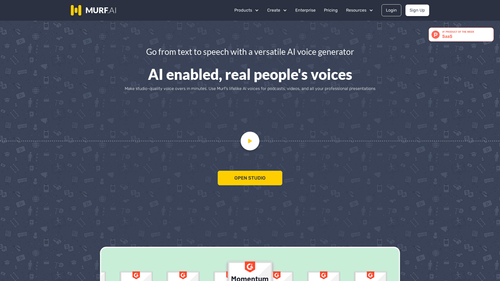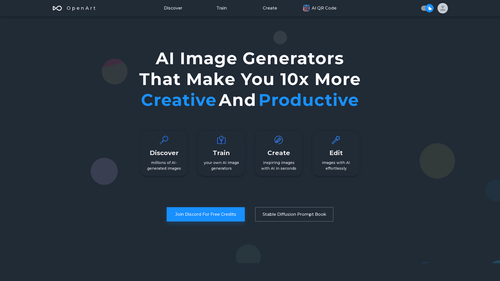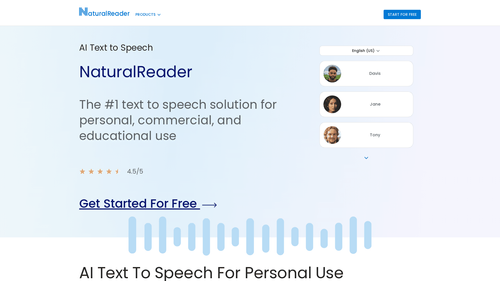What is Eleven Labs?
Eleven Labs is an advanced voice generator that creates text-to-speech and performs voice cloning through artificial intelligence.
With the use of this tool, it is possible to create high-quality synthetic voice narrations for various contents. Additionally, the AI voice generator can be used as an easy-to-use text reader.
By selecting a language, the software generates random text in the respective language, allowing for a varied and personalized experience.
How to Use Eleven Labs: Step-by-Step Guide to Access the Tool

To use Eleven Labs, follow the steps below:
- Access the Eleven Labs website;
- Log in or create an account;
- Choose the desired language;
- Enter the text you want to transform into narration;
- Select the desired voice, style, and intonation;
- Click "Generate audio" to create the narration;
- Download the generated audio.
Use Cases for ElevenLabs
ElevenLabs offers various practical applications, including:
- Videos: Create engaging audio experiences for content creators or storytellers, bringing fictional characters to life and adding emotion to narratives.
- Games: Immerse players in rich and dynamic worlds, using the AI voice generator for dialogues between non-playable characters (NPCs) and real-time narration.
- Audiobooks: Transform extensive content into engaging audio, creating audiobooks with natural voices and tones, ideal for authors and publishers.
- Chatbots: Provide more natural and engaging interaction experiences for users through the text-to-speech tool. The AI-generated voice caters to longer content demands.
The Eleven Labs Text-to-Speech model goes beyond the usual limits of voice generators.
By understanding the logic and emotions behind words, the AI ensures that each speech segment is contextually connected to provide authentic intonation. This allows for compelling delivery of longer segments in any voice.
With the Speech Synthesis tool, it is possible to turn any text into professional audio quickly. The text reader uses a proprietary deep learning model, enabling the production of high-quality audio in significantly less time and cost than traditional recordings.
Additionally, Eleven Labs offers a library of unique synergistic voices produced by the community, providing limitless auditory opportunities.
Users also have the option to create new synthetic voices or clone voices using Eleven Labs' generative AI model. The platform's innovative interface provides complete control over the creative direction and audio editing process.
Eleven Labs is driven by cutting-edge research to offer the most advanced voice cloning and text-to-speech solutions. The company is committed to developing technologies ethically, ensuring appropriate safeguards to minimize the risk of harmful abuse.
How to Clone Voices with ElevenLabs?
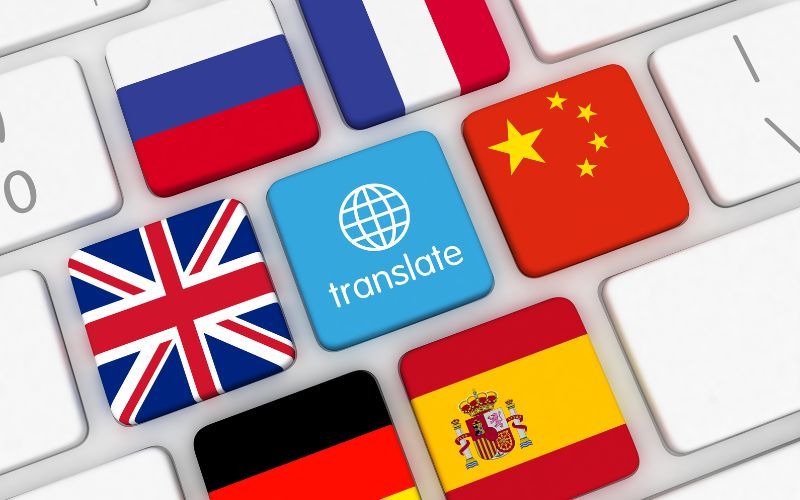
Voice cloning, with ElevenLabs, also known as voice cloning or AI-based voice synthesis, is an area of research and development that uses deep learning algorithms to generate synthetic voices that sound like a specific voice.
It is important to note that the improper or unauthorized use of this technology can raise ethical and legal concerns, such as audio forgery.
Here are the general steps to clone a voice using AI:
- Data Collection: To clone a specific voice, you need to collect a large amount of audio from the reference voice. This may involve voice recordings of the person whose voice you want to clone, covering different tones, speeds, and speaking styles.
- Data Preprocessing: The collected audio data needs to be preprocessed to remove unwanted noise and normalize the volume, ensuring that the data is in a suitable format for training an AI model.
- AI Model Training: Using deep learning techniques such as Convolutional Neural Networks (CNNs) or Recurrent Neural Networks (RNNs), you will train an AI model with the reference voice data. Models like WaveNet and Tacotron have been successfully used for voice cloning.
- Voice Synthesis: After training the model, you can use it to synthesize voice. This involves inputting the text you want the cloned voice to speak, and the model will generate the corresponding audio output.
- Adjustments and Improvements: The cloned voice may require adjustments and improvements to make it more natural and similar to the reference voice. This may involve adjustments to intonation, speed, and other parameters.
- Validation and Testing: It is important to test the cloned voice in different scenarios and with various phrases to ensure that it sounds consistent and natural.
- Respect Ethics and Legality: When cloning voices with AI, it is essential to follow all applicable laws and regulations, especially regarding privacy and ethical use of cloned voices. Unauthorized or deceptive use of cloned voices can have serious legal implications.
Remember that AI-based voice cloning is a powerful technology that should be used responsibly and ethically.
It is important to obtain permission from the person whose voice you are cloning or to be aware of the laws and regulations that may apply in your country or jurisdiction.
